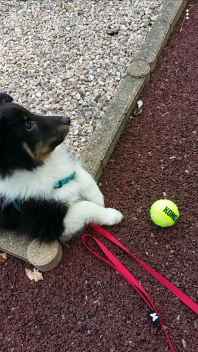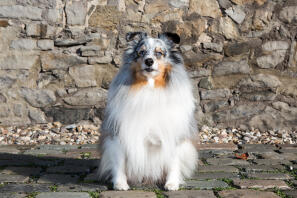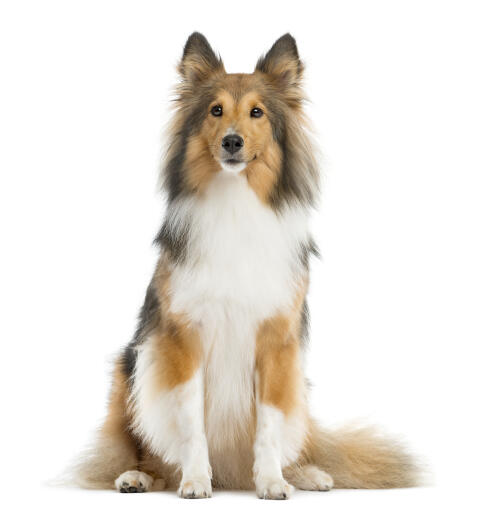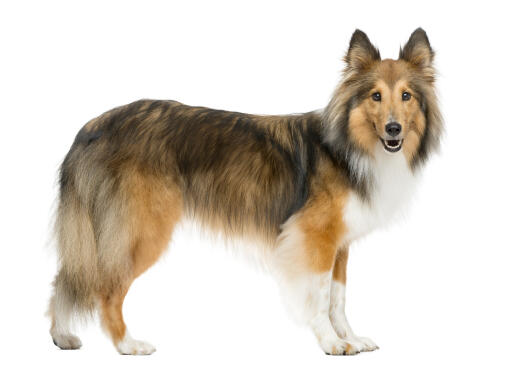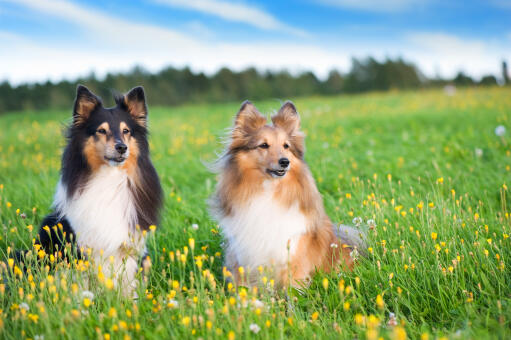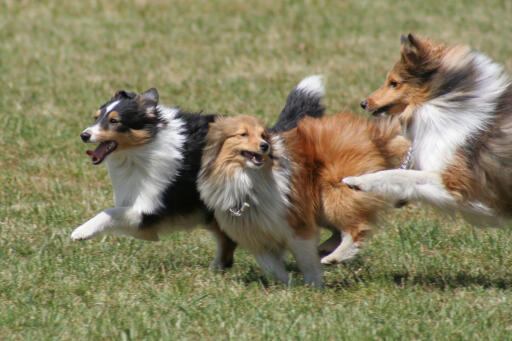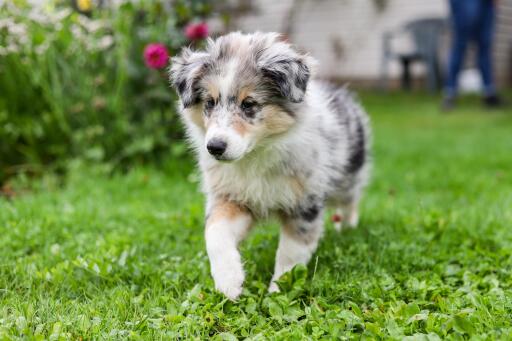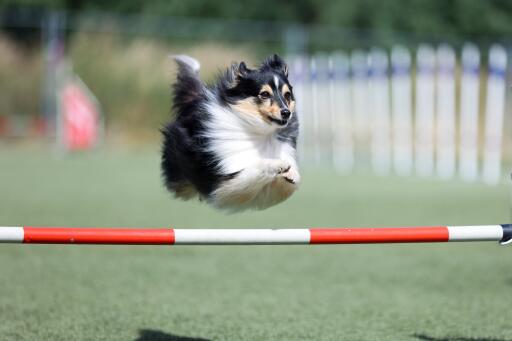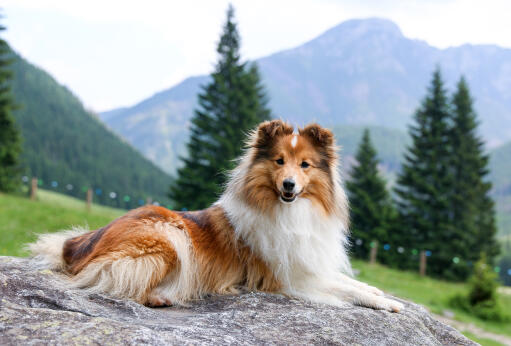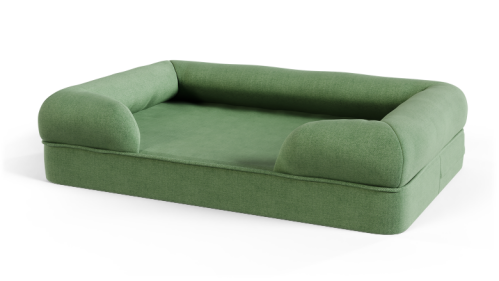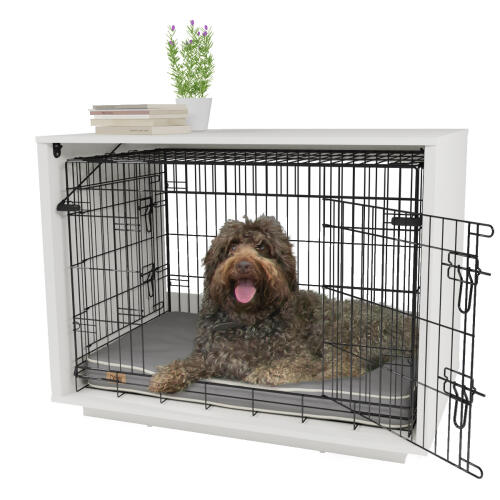Shetland fårehund







History
The Shetland Sheepdog, more often called the Sheltie originates from Scotland in the 1800's. It probably orginates from Scottish herding dogs who were bred with Collies to produce a small dog, capable of herding. The lack of vegetation in the area led to smaller livestock being bred and therefore a smaller dog was also favoured. Due to the isolation of the breed, and lack of outside influence, the breed soon became true and the Sheltie was born. Visiting Naval fleets took the breed to England where it soon became a popular family pet. It is now one of the most popular breeds in America, possibly due to the look of a small 'Lassie' dog.
Behaviour
The Sheltie is an intensely loyal, affectionate breed that likes to be close to their owner. They make great family pets and are excellent with children, but due to their herding instinct, can sometimes nip at childrens' heels. They need to be around people and dislike being left alone for too long. They will follow you from room to room and are curious about the world around them. They like to bark a lot so the 'quiet' command should be taught early on. They can be reserved with strangers at first but are usually accepting once they are in your home. Their need to warn you that someone is at the door, there is a bird in the garden or an aeroplane flying overhead can at times be a bit much, but this is just the way they are. Shelties don't often switch off, but even when in a deep sleep they will have one ear open. Shelties are clever and like to keep their minds active. Training is straight forward as they have a need to learn and to please their owner, which makes things easier. They do very well at agility, obedience, Flyball and herding competitions and love the challenge and praise. They are a gentle breed and can be quite sensitive to harsh treatment, so kind, consistent and reward based training works well. A bored Sheltie can be destructive and bark, annoying the neighbours. They tune into your mood and are empathic dogs that do well as therapy dogs, as well as being a devoted companion to your family. Shelties are active dogs, but don't require hours of walking. A long walk every day is usually enough to fulfil their needs. Recall is excellent and they get along with other dogs with few problems if socialised from an early age. They like to play games of fetch and have boundless energy if you have a frisbee.
Their long coat needs brushing ever day/other day to keep it looking tidy. They do seem to shed a fair amount of fur. Dermatomyositis is the only real health concern; a connective disease that causes skin and muscle inflammation - check with the breeder if possible.
Temperament
Shetland Sheepdogs have a sensitive and companionable temperament. They are highly intelligent dogs who love mental stimulation and excel in obedience if given the right training. They won't respond well to a rough hand and may become withdrawn so best to encourage them with treats and praise. They are sociable with other dogs and should get on fine with a house cat but are likely to show little interest in strangers,
Health Problems
Health problems that may affect Shetland Sheepdogs include collie eye anomoly (inherited condition that can cause blindness), cataracts, progressive retinal atrophy (PRA: degeneration of the retina that can lead to blindness), other eye problems, blood clotting disease, Legg Calvé Perthes disease (degeneration of the femoral head which can cause lameness and joint swelling), patellar luxation (dislocation of the knee cap), canine hip dysplasia (CHD), elbow dysplasia, cancer and skin problems.
Breed Details
- Status: Common
- Life Expectancy: 12 - 13 years
- Vægt: 7 - 9.1 kg
- Højde: 13 - 16"
- Rare: Nej
- Coat: Medium
- Grooming Requirements: Everyday
- Town or Country: Either
- Minimum Home Size: Small House
- Minimum Garden Size: Small to Medium Garden
- Breed Type: Herding
- Størrelse: Medium
- Energy Level: Medium
- Exercise Required: Up to 1 hour
Billeder af Shetland Sheepdog
